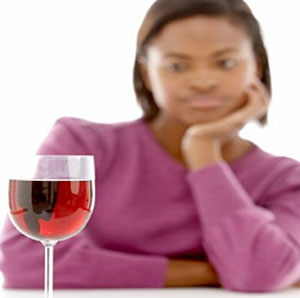Alcohol
Cravings
Alcohol cravings can
be physical or psychological. Physical cravings occur when the
alcohol dependent person has built up a tolerance over time. As
alcohol starts to be processed by the liver and to some extent
excreted in the urine, the cravings signal the body that it is
running out of "fuel" and needs a refill. Alcohol cravings
like other physical cravings (such as those experienced when you
are fasting) are taken as a symbol that its time to give the body
what it needs.
 Craving Alcohol
Craving Alcohol |
|

This "craving confusion" is quite natural. For those
who are fasting, the body craves food as a signal that they too
are low on fuel. Some pregnant women crave all sorts of specific
nutrients as a signal that this is what their bodies are lacking
and they need to give their bodies what it needs.
On the flip side, though, are food allergies. The body craves
the foods to which it is allergic. Food allergy cravings can parallel
alcohol cravings, and in fact, this is just what some researchers
believe is happening. They believe alcohol to be yet another food
allergy where the body craves something to which it is allergic.
This can seem quite counterintuitive to many, as the body yearns
for what should not be put into it.
The second kind of alcohol
craving is psychological.
Once again, those who have fasted will know well that at the very
beginning there are many emotional issues that can come up regarding
the fast that is very different from the physical food cravings.
When doing a food fast, journaling is one thing that can help
with the emotional issues.

Decisions, decisions ...
For psychological alcohol cravings, journaling can be beneficial
as well. What is even more beneficial though is psychotherapy
from a qualified therapist in order to help make sense of the
meanings behind the constant cravings.
Many times the psychological part means that unresolved grief,
fear and belief systems need to be dealt with in a safe environment.
Compulsive beliefs can lead to compulsive drinking so uncovering
the underlying emotional issues surrounding drinking is a must.
Physical and psychological cravings can be a powerful motivation
compelling some to drink. Even though the cravings may not be
controlled, they can be dissipated and they don't have to be acted
upon. When the person in an alcohol recovery program can learn
to tolerate the cravings and not act upon them, they are in a
good position to start taking control back of their lives.
|


